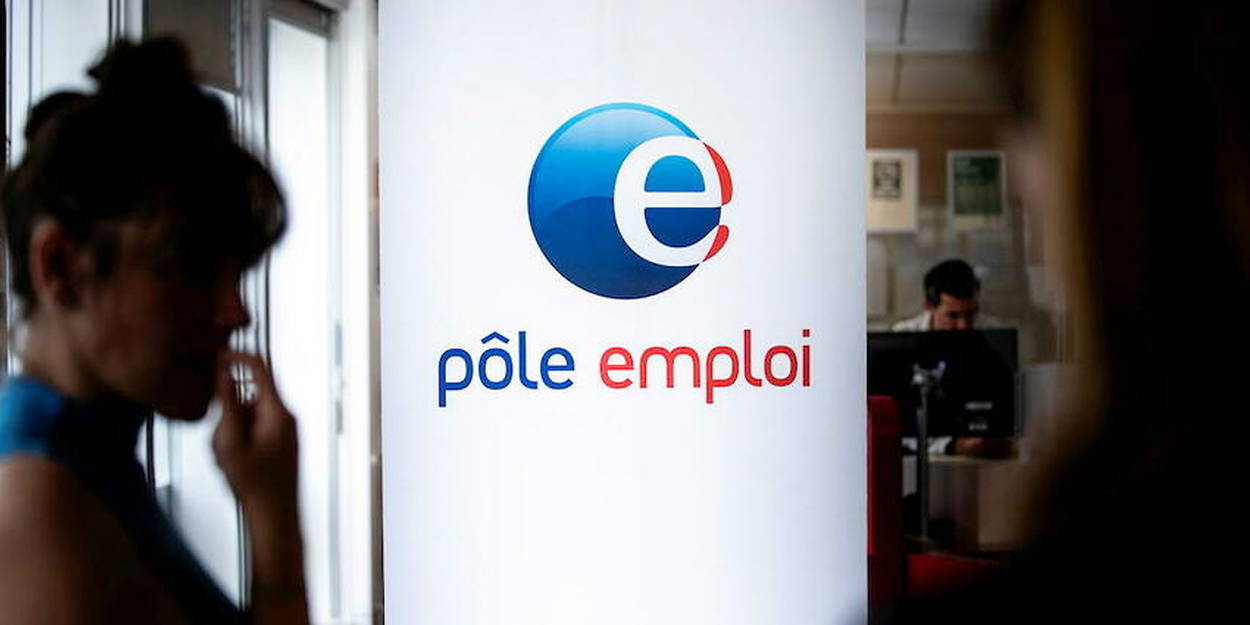Macron’s campaign promise to reconnect with full employment relies on support for RSA beneficiaries, which worries the unions.
By NB with AFP
© REA / Come SITTLER/REA
Published on
Subscriber-only audio playback
Dn the framework of its “full employment” bill, which must be presented to the Council of Ministers on Wednesday, the government should record the birth of France Travail, the successor to Pôle emploi, which worries the unions about the support for the beneficiaries of the RSA. This campaign promise by Emmanuel Macron, “falling like a meteorite” according to an employment sector official, aims to better coordinate the actors of the public employment service.
In essence, it is a matter of having a single point of entry for all people seeking employment or encountering integration difficulties. Including RSA beneficiaries, only 40% of whom are currently registered with Pôle Emploi. The public operator and all the actors (local missions, Cap emploi but also local authorities, etc.) will have to work better in a network with interconnected computer systems. Pôle emploi will call itself France Travail at 1er January 2024 and will be the chief operator of this network.READ ALSO Work: how Emmanuel Macron intends to reconnect with full employment
Today, “the distribution of skills is a bit complex”, underlined Thursday Élisabeth Borne, between the State responsible for supporting job seekers, the regions of their training, the departments for the integration of beneficiaries of the RSA, the communities of the stakes of childcare or housing… “It is not a question of making an institutional big bang, but of playing collective”, she summarized.
“No one is unemployable”
The executive is betting on this transformation to achieve full employment, i.e. an unemployment rate of around 5% in 2027 (against 7.1% currently), against the backdrop of the idea that “no one is unemployable”. . In concrete terms, each member of France Travail will sign a contract of engagement at the start of their course. It is in this context that renewed support for RSA recipients is being tested in 18 departments with the sensitive issue of 15 to 20 hours of work per week in “a logic of rights and duties”.
Not formally enshrined in law, these hours (immersion, refresher course, CV writing, etc.) will be an objective “adapted” to everyone, said Minister of Labor Olivier Dussopt, insisting that it will be “neither free labor or compulsory voluntary work”. He recalls that the contract between the beneficiary and his adviser “exists since the creation of the RMI in 1988”, but that currently “out of 1.950 million beneficiaries of the RSA, 350,000 have no follow-up”.READ ALSO Retirement, unemployment, apprenticeship… Olivier Dussopt unveils the reforms of the quinquennium
For the minister, “what fails is the support. We are not quit of our duty of solidarity when we have paid 607 euros ”. The bill reforms the penalties for recipients who do not meet their obligations. It will now make it possible to temporarily suspend the payment of the RSA, before a decision to delete it. The decision will be taken by the president of the county council.
Unions express concern
This aspect is of concern to the unions, who recalled in inter-union “their opposition to any attack on the principle of national solidarity with the reform of the RSA”. For the CFDT, Marylise Léon warned Friday in Humanity that the conditionality of the RSA “is a red line”. Denis Gravouil (CGT) criticizes the government for playing on the fact that “unlike pensions”, part of the public thinks that it is necessary to “fall” on the recipients of the RSA.
Today, the radiation is “reserved for very serious cases of fraud or other,” he told Agence France-Presse. There, they want “so-called graduated sanctions but in fact much more frequent, which is inadmissible”. Among the 60% of RSA recipients not registered with Pôle Emploi, “we find situations of disability, extremely difficult social situations and it is absurd to provide 15 to 20 hours of activity”, he says.
While Jean-François Foucard (CFE-CGC) notes “operational added value”, including the fact that it is “more fluid” for job seekers, he also says he is “very dubious about sanctioning those who are the most damaged”.READ ALSO RSA: what does Macron really want to do?
To strengthen support, there will be “additional means”, assured Olivier Dussopt, recalling that the report prefiguring the reform had quantified its cost “between 2 and 2.5 billion euros cumulatively until 2027”. But this will also involve the redeployment of Pôle emploi positions. The governance of this network is also disputed. Regions of France notably denounced “a vague, regressive and recentralizing project”.
